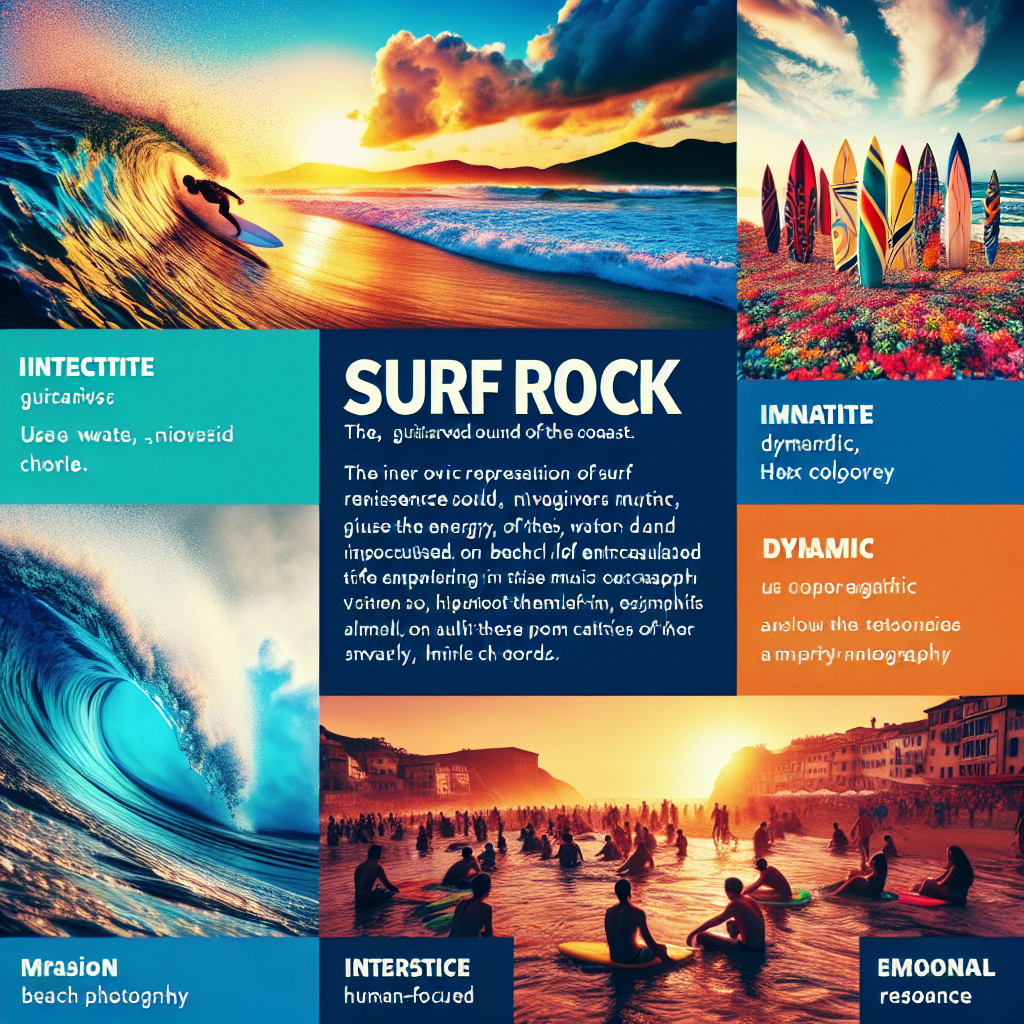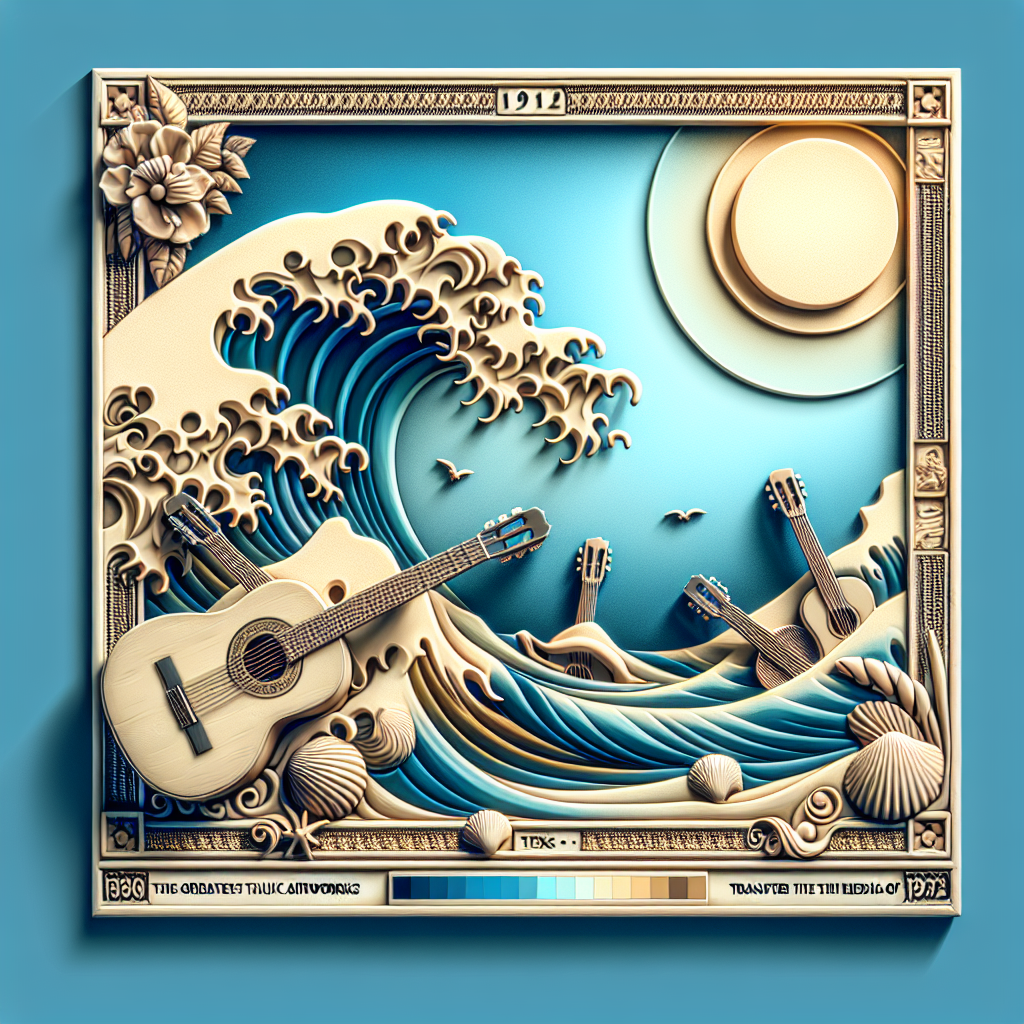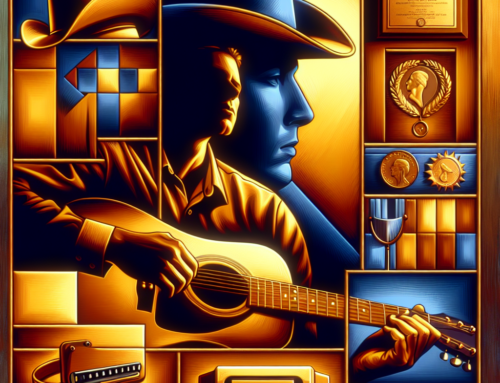-
Table of Contents
- Surf Rock: The Upbeat, Guitar-Driven Sound of the Coast
- Top 5 Tips for Understanding Surf Rock
- The Origins of Surf Rock
- Key Influences
- Iconic Surf Rock Bands and Artists
- The Beach Boys
- Dick Dale
- The Evolution of Surf Rock
- Impact on Later Genres
- Revival and Modern Interpretations
- The Cultural Impact of Surf Rock
- Fashion and Lifestyle
- Film and Media
- Conclusion
“`html
Surf Rock: The Upbeat, Guitar-Driven Sound of the Coast

Surf rock, a genre that emerged in the early 1960s, is characterized by its upbeat tempo, reverb-heavy guitars, and a sound that evokes the carefree spirit of coastal life. This article delves into the origins, evolution, and enduring appeal of surf rock, offering insights and examples that highlight its unique place in music history.
Top 5 Tips for Understanding Surf Rock
- Explore the roots of surf rock in Southern California’s beach culture.
- Listen to iconic surf rock bands like The Beach Boys and Dick Dale.
- Understand the influence of surf rock on later music genres.
- Recognize the signature sound of surf rock: reverb-drenched guitars and driving rhythms.
- Appreciate the cultural impact of surf rock on fashion and lifestyle.
The Origins of Surf Rock
Surf rock originated in Southern California during the late 1950s and early 1960s, a time when the surf culture was booming. The genre was heavily influenced by the burgeoning beach lifestyle, which celebrated sun, sand, and surfing. Musicians sought to capture this vibrant energy through music, leading to the creation of surf rock.
Key Influences
One of the most significant influences on surf rock was the instrumental rock of the late 1950s. Artists like Link Wray and Duane Eddy laid the groundwork with their innovative guitar techniques, which were later adopted and adapted by surf rock musicians.
Iconic Surf Rock Bands and Artists
Several bands and artists have become synonymous with surf rock, each contributing to the genre’s distinctive sound and style.
The Beach Boys
The Beach Boys are perhaps the most famous surf rock band, known for their harmonious vocals and catchy melodies. Songs like “Surfin’ U.S.A.” and “California Girls” epitomize the surf rock sound and have become timeless classics.
Dick Dale
Often referred to as the “King of the Surf Guitar,” Dick Dale was instrumental in defining the surf rock sound. His use of rapid alternate picking and heavy reverb on tracks like “Misirlou” set a new standard for guitarists and influenced countless musicians.
The Evolution of Surf Rock
While surf rock’s popularity peaked in the early 1960s, its influence has persisted across decades and genres.
Impact on Later Genres
Surf rock’s energetic and guitar-driven sound has influenced a variety of music genres, including punk rock, garage rock, and even indie rock. Bands like The Ramones and The Pixies have cited surf rock as a key influence on their music.
Revival and Modern Interpretations
In recent years, there has been a resurgence of interest in surf rock, with modern bands like The Drums and Best Coast incorporating elements of the genre into their music. This revival has introduced surf rock to a new generation of listeners.
The Cultural Impact of Surf Rock
Beyond its musical contributions, surf rock has had a lasting impact on popular culture, influencing fashion, film, and lifestyle.
Fashion and Lifestyle
The surf rock era popularized a laid-back, beach-inspired fashion that continues to influence style today. Board shorts, Hawaiian shirts, and flip-flops became emblematic of the surf rock lifestyle.
Film and Media
Surf rock has also been featured prominently in films and television shows, often used to evoke a sense of nostalgia and carefree fun. Movies like “Pulp Fiction” and “Endless Summer” have helped keep the genre alive in popular culture.
Conclusion
Surf rock remains a beloved genre that captures the essence of coastal life with its upbeat, guitar-driven sound. From its origins in Southern California to its influence on modern music and culture, surf rock continues to resonate with audiences around the world. Whether you’re a longtime fan or new to the genre, surf rock offers a timeless soundtrack to the sun-soaked days of summer.
For more information on surf rock, you can visit Wikipedia.
“`




